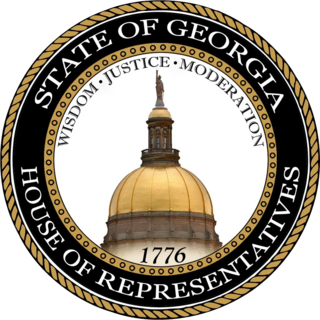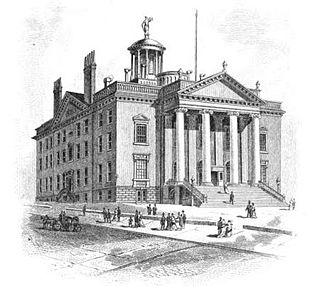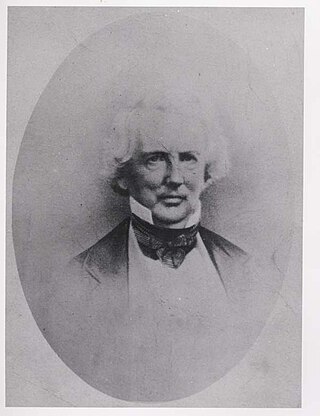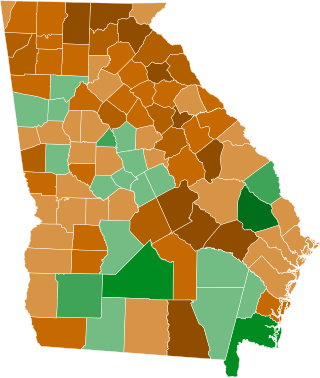| History of the State of Georgia |
|---|
 |
|
The General Assembly, the legislature of the U.S. state of Georgia, has convened many times since statehood became effective on January 2, 1778.
| History of the State of Georgia |
|---|
 |
|
The General Assembly, the legislature of the U.S. state of Georgia, has convened many times since statehood became effective on January 2, 1778.
| | This section needs expansion. You can help by adding to it. (March 2019) |
| Session | Session dates | # of legislative days | # of bills introduced | # of bills passed |
|---|---|---|---|---|
| 1 | May 8, 1777 – June 17, 1777 ??? -September 16, 1777 | |||
| 2 | January 6, 1778 – March 1, 1778 May 2—?, 1778 October 30— November 15, 1778 | |||
| 3 | January 5, 1779-? July ?—July 24, 1779 Nov. 4(?)- ?, 1779 | |||
| 4 | January 4, 1780 - February 5, 1780 | |||
| 5 | August 17, 1781 - August 22, 1781 | |||
| 6 | January 1, 1782 - January 12, 1782 Apr. 17-May 4 July 3—July 4, Ann. Adj. July 13—Aug. 5, Adj. October 15- October 21, 1782 | |||
| 7 | January 1, 1783 - Feb. 18. May 1—May 6, Ex. May 15—June 14, Ann. Adj. July 1—Aug. 1 1783, Ex. | |||
| 8 | Jan. 6 - Feb. 26, 1784 July 5—July 13, 1784 Adj. Oct. 6—Oct. 14, 1784, Adj. | |||
| 9 | Jan. 4, 1785 - Feb. 22, 1785 | |||
| 10 | Jan. 3—Feb. 14, 1786 July 17—Aug. 15, 1786 | |||
| 11th | Jan. 2—Feb. 11, 1787 July 3—Oct. 31, 1787 | |||
| 12th | Jan. 1—Feb. 1, 1788 July 22—Aug. 6, 1788, Ex Nov. 4—Nov. 13, 1788 | |||
| 13th | January 6, 1789 - February 4, 1789 | |||
| 14th | Nov. 2—Dec. 24, 1789 June 7–11, 1790, Ex. | |||
| 15th | Nov. 1, 1790 - Dec. 11, 1790 | |||
| 16th | Nov. 7, 1791 - Dec. 24, 1791 | |||
| 17th | Nov. 5—Dec. 20 (?), 1792 | |||
| 18th | Nov. 4-Dec. 20, 1793 | |||
| 19th | Nov. 3, 1794— Jan. 8, 1795 | |||
| 20th | Jan. 12—Feb. 22, 1796 | |||
| 21st | Jan. 10—Feb. 11, 1797 | |||
| 22nd | Jan. 9—Feb. 3, 1798 | |||
| 23rd | Jan. 8—Feb. 18, 1799 | |||
| 24th | Nov. 4—Dec. 6, 1799 | |||
| 25th | Nov. 3—Dec. 2, 1800 | |||
| 26th | Nov. 2—Dec. 5, 1801 June 10—June 16, 1802 (Ex) | |||
| 27th | Nov. 1—Nov. 27, 1802 Apr. 18—May 11, 1803 (Ex.) | |||
| 28th | Nov. 8—Dec. 11, 1803 May 14—May 19, 1804 (Ex) | |||
| 29th | Nov. 5—Dec. 13, 1804 | |||
| 30th | Nov. 4—Dec. 7, 1805 June 9—June 26, 1806 Ex. | |||
| 31st | Nov. 3—Dec. 6., 1806 | |||
| 32nd | Nov. 2—Dec. 10, 1807 May 9—May 22, 1808 (Ex) | |||
| 33rd | Nov. 7—Dec. 21, 1808 | |||
| 34th | Nov. 6—Dec. 14, 1809 | |||
| 35th | Nov. 5—Dec. 14, 1810 | |||
| 36th | Nov. 4—Dec. 14, 1811 | |||
| 37th | Nov. 2—Dec. 10, 1812 | |||
| 38th | Nov. 1—Dec. 4, 1813 | |||
| 39th | Oct. 17—Nov. 23, 1814 | |||
| 40th | Nov. 6—Dec. 16, 1815 | |||
| 41st | Nov. 4—Dec. 18, 1816 | |||
| 42nd | Nov. 3—Dec. 20, 1817 | |||
| 43rd | Nov. 2—Dec. 19, 1818 | |||
| 44th | Nov. 1—Dec. 20, 1819 | |||
| 45th | Nov. 6—Dec. 20, 1820 Apr. 30—May 15, 1821 Ex. | |||
| 46th | Nov. 5—Dec. 22, 1821 | |||
| 47th | Nov. 4—Dec. 24, 1822 | |||
| 48th | Nov. 3—Dec. 20, 1823 | |||
| 49th | Nov. 1—Dec. 18, 1824 May 23—June 11, 1825 Ex | |||
| 50th | Nov. 7—Dec. 22, 1825 | |||
| 51st | Nov. 6—Dec. 22, 1826 | |||
| 52nd | Nov. 5—Dec. 24, 1827 | |||
| 53rd | Nov. 3—Dec. 20, 1828 | |||
| 54th | Nov. 2—Dec. 21, 1829 | |||
| 55th | Oct. 18—Dec. 23, 1830 | |||
| 56th | Nov. 7—Dec. 24, 1831 | |||
| 57th | Nov. 5—Dec. 22, 1832 | |||
| 58th | Nov. 4—Dec. 21, 1833 | |||
| 59th | Nov. 3—Dec. 20, 1834 | |||
| 60th | Nov. 2—Dec. 22, 1835 | |||
| 61st | Nov. 7-Dec. 24, 1836 | |||
| 62nd | Nov. 6—Dec. 25, 1837 | |||
| 63rd | Nov. 5—Dec. 29, 1838 | |||
| 64th | Nov. 4—Dec. 21, 1839 | |||
| 65th | Nov. 2—Dec. 23, 1840 | |||
| 66th | Nov. 1—Dec. 9, 1841 | |||
| 67th | Nov. 7—Dec. 27, 1842 | |||
| 68th | Nov. 6—Dec. 23, 1843 | |||
| 69th | Nov. 3—Dec. 24, 1845 | |||
| 70th | Nov. 1—Dec. 30, 1847 | |||
| 71st | Nov. 5—Dec. 20, 1849 Jan. 14—Feb. 23, 1850 | |||
| 72nd | Nov. 3—Dec. 22, 1851 Dec. 26—Jan. 22, 1852 | |||
| 73rd | Nov. 7—Dec. 21, 1853 Jan. 9—Feb. 17, 1854 | |||
| 74th | Nov. 5—Dec. 20, 1855 Jan. 14—Mar. 1, 1856 | |||
| 75th | Nov. 4—Dec. 22, 1857 Nov. 3—Dec. 11, 1858 | |||
| 76th | Nov. 2—Dec. 16, 1859 Nov. 7—Dec. 19, 1860 | |||
| 77th | Nov. 6—Dec. 14, 1861 Nov. 6—Dec. 13, 1862 Mar. 25—Apr. 18, 1863 Ex. | |||
| 78th | Nov. 5—Dec. 14, 1863 Mar. 10—Mar. 19, 1864 Ex. Nov. 3—Nov. 18, 1864 Feb. 15—Mar. 11, 1865 Ex. | |||
| 79th | Dec. 4—Dec. 15, 1865 Jan. 15—Mar. 13, 1866 Nov. 6—Dec. 14, 1866 | |||
| 80th | July 4—Oct. 6, 1868 Ex. Jan. 13—Mar. 18, 1869 Jan. 10—Oct. 25, 1870 Ex. | |||
| 81st | Nov. 1—Dec. 15, 1871 Jan 10—Jan 19, 1872 July 17—Aug. 24, 1872 Adj. | |||
| 82nd | Jan. 8—Feb. 18, 1873 Jan. 14—Feb. 26, 1874 | |||
| 83rd | Jan. 13—Mar. 1, 1875 Jan. 12—Feb. 24, 1876 | |||
| 84th | Jan. 10—Feb. 22, 1877 | |||
| 85th | Nov. 6—Dec. 13, 1878 July 2—Oct. 15, 1879 Adj. | |||
| 86th | Nov. 3—Dec. 4, 1880 July 6—Sept. 27, 1881 Adj. | |||
| 87th | Nov. 1—Dec. 8, 1882 May 9—May 10, 1883 Ex. July 4—Sept. 26, 1883 Ann. Adj. | |||
| 88th | Nov. 5—Dec. 20, 1884 July 8—Oct. 15, 1885 Adj. | |||
| 89th | Nov. 3—Dec. 22, 1886 July 6—Oct. 20, 1887 Adj. | |||
| 90th | Nov. 7—Dec. 22, 1888 July 3—Nov. 9, 1889 Adj | |||
| 91st | Nov. 5—Dec. 22, 1890 July 8—Oct. 15, 1891 Adj | |||
| 92nd | Oct. 26—Dec. 17, 1892 Oct. 25—Dec. 13, 1893 | |||
| 93rd | Oct. 24—Dec. 12, 1894 Oct. 23—Dec. 11, 1895 | |||
| 94th | Oct. 28—Dec. 19, 1896 Feb. 3—Feb. 3, 1897 Adj Oct. 17—Dec. 16, 1897 | |||
| 95th | Oct. 26—Oct. 17, 1898 Oct. 25—Dec. 16, 1899 | |||
| 96th | Oct. 24—Dec. 15, 1900 Oct. 23—Dec. 13, 1901 | |||
| 97th | Oct. 22—Dec. 12, 1902 June 24—Aug. 12, 1903 June 22—Aug. 11, 1904 | |||
| 98th | June 28—Aug. 18, 1905 June 27—Aug. 15, 1906 | |||
| 99th | June 26—Aug. 17, 1907 June 24—Aug. 12, 1908 Aug. 25—Sept. 19, 1908 Ex. | |||
| 100th | June 23—Aug. 11, 1909 June 22—Aug. 10, 1910 | |||
| 101st | June 28—Aug. 17, 1911 Jan. 24—Jan. 25, 1912 Ex June 26—Aug. 14, 1912 | |||
| 102nd | June 25—Aug. 14, 1913 June 24—Aug. 12, 1914 | |||
| 103rd | June 23—Aug. 11, 1915 Nov. 3—Nov. 25, 1915 Ex June 28—Aug. 16, 1916 Mar. 20—Mar. 28, 1917 Ex | |||
| 104th | June 27—Aug. 15, 1917 June 26—Aug. 14, 1918 | |||
| 105th | June 25—Aug. 13, 1919 June 23—Aug. 11, 1920 | |||
| 106th | June 22—Aug. 10, 1921 June 28—Aug. 17, 1922 | |||
| 107th | June 27—Aug. 15, 1923 Nov. 7—Dec. 14, 1924 Ex June 25—Aug. 13, 1924 | |||
| 108th | June 24-Aug. 22, 1925 Feb. 24—Mar. 18 1926 Ex. Mar. 19—Apr. 15, 1926 Ex. | |||
| 109th | June 22-August 20, 1927 | |||
| 110th | June 26—Aug. 24, 1929 Jan. 6—Mar. 26, 1931 Ex. | |||
| 111th | June 24—Aug. 22, 1931 | |||
| 112th | June 24—Aug. 22, 1933 Jan. 9—Jan. 18, 1933 Special | |||
| 113th | Jan. 14—Jan. 23, 1935 Jan. 24—Mar. 28, 1935 | |||
| 114th | Jan. 11—Jan. 18, 1937 Jan. 25—Mar. 25, 1937 Nov. 22, 1937—Feb. 12, 1938, Ex. | |||
| 115th | Jan. 9—Jan. 18, 1939 (Ten days) Jan. 19—Mar. 18, 1939 (Regular) | |||
| 116th | Jan. 13—Jan. 22, 1941 (Ten days) Jan. 23—Mar. 22, 1941 Regular | |||
| 117th | Jan. 11—Jan. 15, 1943 (Special) Jan. 18—Mar. 18, 1943 (Regular) Sept. 27—Oct. 1, 1943 (Ex.) Jan. 3—Jan. 7, 1943 (Ex.) | |||
| 118th | Jan. 8—Mar. 3, 1945 May 29—June 1, 1945 Ex. Jan. 14—Jan. 28, 1946 | |||
| 119th | Jan. 13—Mar. 22, 1947 Sept. 27—Oct. 1, 1948 Ex. Nov. 16—Nov. 17, 1948 Ex. | |||
| 120th | Jan. 10—Feb. 19, 1949 July 18—July 28, 1949 Ex. Jan. 16—Feb. 13, 1950 | |||
| 121st | Jan. 8—Feb. 16, 1951 Jan. 14—Feb. 14, 1952 | |||
| 122nd | Jan. 12—Feb. 25, 1953 Nov. 16—Dec. 10, 1953 | |||
| 123rd | Jan. 10—Feb. 18, 1955 June 6—June 17, 1955 (Ex) Jan. 9—Feb. 17, 1956 | |||
| 124th | Jan. 14—Feb. 22, 1957 Jan. 13—Feb. 21, 1958 | |||
| 125th | Jan. 12—Feb. 20, 1959 Jan. 11—Feb. 19, 1960 | |||
| 126th | Jan. 9—Feb. 2, 1961 Feb. 20—Mar. 6, 1961 Jan. 8—Feb. 16, 1962 Apr. 16—Apr. 27, 1962 (Ex) Sept 27—Oct. 8, 1962 (2nd Ex) | |||
| 127th | Jan. 14–25, 1963 Feb. 11—Mar. 15, 1963 Jan. 13—Feb. 21, 1964 May 4—June 25, 1964 | |||
| 128th | Jan. 11–22, 1965 Feb. 8—Mar. 12, 1965 Jan. 10—Feb. 18, 1966 | |||
| 129th | Jan. 9-20, 1967 Feb. 13—Mar. 17, 1967 Jan. 8-19, 1968 Jan. 29—Feb. 16, 1968 Feb. 26—Mar. 2, 1968 Mar. 4–8, 1968 | |||
| 130th | Jan. 13—Jan. 24, 1969 Feb. 10—Mar. 21, 1969 June 12—June 13, 1969 Jan. 12—Feb. 21, 1970 | |||
| 131st | Jan. 11—Jan. 22, 1971 Feb. 8—Mar. 12, 1971 Sept. 24—Oct. 8, 1971 Jan. 10—Feb. 4, 1972 Feb. 21—Mar. 9, 1972 | |||
| 132nd | Jan. 8—Jan. 19, 1973 Feb. 12—Mar. 16, 1973 Jan. 14—Feb. 22, 1974 (Recessed) Feb. 26, 1974 (Reconvened & Adjourned) | |||
| 133rd | Jan. 13-Jan. 24, 1975 (Recessed); Feb. 10-Mar. 3, 1975 Adj.; Mar. 7, 1975 Adj.; Mar. 10-Mar. 13, 1975 Adj.; Mar. 18-Mar. 21, 1975 Adj.; Mar. 24-Mar. 25, 1975 Adj. Sine Die; June 23-July 3, Adj. Spec. Sess. Jan. 12-Jan. 23, 1976 (Recessed); Feb. 2-Feb. 13, 1976; Feb. 16-Feb. 20; Feb. 23-Feb. 28, 1976; Mar. 1-Mar. 5, Adj. Sine Die | |||
| 134th | Jan. 10–18, 1977 Jan. 31-March. 10, 1977 Jan. 9-20 1978 Feb. 6-March 7, 1978, Adj. Sine Die | |||
| 135th | January 8 - March 27, 1979 January 14 - March 8, 1980 | |||
| 136th | January 12 - March 25, 1981 January 11 - March 26, 1982 August 3–8, 1982 | |||
| 137th | January 10 - March 4, 1983 January 9 - February 29, 1984 | |||
| 138th | January 14 - March 8, 1985 January 13 - March 7, 1986 | |||
| 139th | January 12 - March 12, 1987 January 11 - March 7, 1988 | |||
| 140th | January 9 - March 15, 1989 January 8 - March 9, 1990 | |||
| 141st | January 14 - March 15, 1991 August 9 - September 15, 1991 January 11 - March 31, 1992 | |||
| 142nd | January 11 - March 23, 1993 January 10 - March 16, 1994 | |||
| 143rd | January 9 -March 17, 1995 January 8, March 18, 1996 | |||
| 144th | January 13 - March 28, 1997 January 12 - March 19, 1998 | |||
| 145th | January 11 - March 24, 1999 January 10 - March 22, 2000 | |||
| 146th | January 8 - March 21, 2001 January 14 - April 12, 2002 | |||
| 147th | January 13 - April 25, 2003 January 12 - May 7, 2004 | |||
| 148th | January 10 - March 31, 2005 September 6–10, 2005 January 9 - March 30, 2006 | |||
| 149th | January 8 - April 16, 2007 January 14 - April 4, 2008 | |||
| 150th | January 12 - April 3, 2009 January 11 - April 29, 2010 | |||
| 151st | January 10 - April 14, 2011 January 9 - March 29, 2012 | |||
| 152nd | January 14, 2013 – March 29, 2013 January 13, 2014 – March 21, 2014 | |||
| 153rd | January 12, 2015 - April 2, 2015 January 11, 2016 - March 24, 2016 | |||
| 154th | January 9, 2017 – March 30, 2017 January 8, 2018 – March 29, 2018 | |||
| 155th | January 14, 2019 – April 2, 2019 January 13, 2020 – June 26, 2020 | |||
| 156th | January 11, 2021 – March 31, 2021 | |||
| 157th [1] | January 9, 2023 – 2024 |
A constitutional amendment is a modification of the constitution of a polity, organization or other type of entity. Amendments are often interwoven into the relevant sections of an existing constitution, directly altering the text. Conversely, they can be appended to the constitution as supplemental additions, thus changing the frame of government without altering the existing text of the document.

A constituent assembly is a body assembled for the purpose of drafting or revising a constitution. Members of a constituent assembly may be elected by popular vote, drawn by sortition, appointed, or some combination of these methods. Assemblies are typically considered distinct from a regular legislature, although members of the legislature may compose a significant number or all of its members. As the fundamental document constituting a state, a constitution cannot normally be modified or amended by the state's normal legislative procedures in some jurisdictions; instead a constitutional convention or a constituent assembly, the rules for which are normally laid down in the constitution, must be set up. A constituent assembly is usually set up for its specific purpose, which it carries out in a relatively short time, after which the assembly is dissolved. A constituent assembly is a form of representative democracy.

The Delaware General Assembly is the legislature of the U.S. state of Delaware. It is a bicameral legislature composed of the Delaware Senate with 21 senators and the Delaware House of Representatives with 41 representatives. It meets at Legislative Hall in Dover, convening on the second Tuesday of January of odd-numbered years, with a second session of the same Assembly convening likewise in even-numbered years. Normally the sessions are required to adjourn by the last day of June of the same calendar year. However the Governor can call a special session of the legislature at any time.

The Georgia General Assembly is the state legislature of the U.S. state of Georgia. It is bicameral, consisting of the Senate and the House of Representatives.

The Corwin Amendment is a proposed amendment to the United States Constitution that has never been adopted, but owing to the absence of a ratification deadline, could still be adopted by the state legislatures. It would shield slavery within the states from the federal constitutional amendment process and from abolition or interference by Congress. Although the Corwin Amendment does not explicitly use the word slavery, it was designed specifically to protect slavery from federal power. The outgoing 36th United States Congress proposed the Corwin Amendment on March 2, 1861, shortly before the outbreak of the American Civil War, with the intent of preventing that war and preserving the Union. It passed Congress but was not ratified by the requisite number of state legislatures.

The Missouri General Assembly is the state legislature of the U.S. state of Missouri. The bicameral General Assembly is composed of a 34-member Senate and a 163-member House of Representatives. Members of both houses of the General Assembly are subject to term limits. Senators are limited to two four-year terms and representatives to four two-year terms, a total of 8 years for members of both houses.

The Tennessee General Assembly (TNGA) is the state legislature of the U.S. state of Tennessee. It is a part-time bicameral legislature consisting of a Senate and a House of Representatives. The Speaker of the Senate carries the additional title and office of Lieutenant Governor of Tennessee. In addition to passing a budget for state government plus other legislation, the General Assembly appoints three state officers specified by the state constitution. It is also the initiating body in any process to amend the state's constitution.

The Georgia House of Representatives is the lower house of the Georgia General Assembly of the U.S. state of Georgia. There are currently 180 elected members. Republicans have had a majority in the chamber since 2005. The current House Speaker is Jon G. Burns.

The Georgia State Senate is the upper house of the Georgia General Assembly, in the U.S. state of Georgia.

The Constitution of the State of Connecticut is the basic governing document of the U.S. state of Connecticut. It was approved by referendum on December 14, 1965, and proclaimed by the governor as adopted on December 30. It comprises 14 articles and has been amended 31 times.
The Constitution of the State of Georgia is the governing document of the U.S. State of Georgia. The constitution outlines the three branches of government in Georgia. The legislative branch is embodied in the bicameral General Assembly. The executive branch is headed by the Governor. The judicial branch is headed by the Supreme Court. Besides providing for the organization of these branches, the Constitution carefully outlines which powers each branch may exercise.

The drafting of the Constitution of the United States began on May 25, 1787, when the Constitutional Convention met for the first time with a quorum at the Pennsylvania State House in Philadelphia, Pennsylvania to revise the Articles of Confederation. It ended on September 17, 1787, the day the Frame of Government drafted by the convention's delegates to replace the Articles was adopted and signed. The ratification process for the Constitution began that day, and ended when the final state, Rhode Island, ratified it on May 29, 1790.

The 69th New York State Legislature, consisting of the New York State Senate and the New York State Assembly, met from January 6 to May 13, 1846, during the second year of Silas Wright's governorship, in Albany.
The law of the U.S. state of Georgia consists of several levels, including constitutional, statutory, and regulatory law, as well as case law and local law. The Official Code of Georgia Annotated forms the general statutory law.

The Virginia Secession Convention of 1861 was called in the state capital of Richmond to determine whether Virginia would secede from the United States, govern the state during a state of emergency, and write a new Constitution for Virginia, which was subsequently voted down in a referendum under the Confederate Government.
Samuel Lauderdale Park is an American politician and lawyer, who was elected to the Georgia House of Representatives in the 2016 elections. A member of the Democratic Party, he represents the 107th district.

The 1851 Georgia gubernatorial election was held on October 6, 1851, to elect the governor of Georgia. Howell Cobb, nominee for the newly formed Constitutional Union Party, defeated the Southern Rights Candidate, Charles McDonald.

The Fifth Legislative Assembly of the Wisconsin Territory convened from January 4, 1847, to February 11, 1847, and from February 7, 1848, to March 13, 1848, in regular session. The Assembly also convened in special session from October 18, 1847, to October 27, 1847, to organize a second constitutional convention after the failure to adopt the first Wisconsin Constitution.